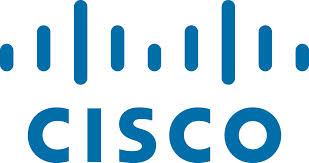Monday, March 5, 2012
Smart IP makes for smart cities
I happened to see the New York Times yesterday - yes, I still read newspapers - and so should you! The feature story in the Sunday Business section caught my eye right away; it was about what IBM is doing to help Rio de Janeiro become a smart city. We're hearing a lot about Big Data lately, but mostly in the context of helping enterprises or institutions manage the impossible web of data that's a natural byproduct of the "Internet of things".
Well, if you think that's a challenge, try doing this for an entire city. That's what this article was about, and with Rio being a big city, the scale is mind boggling. Just like we've seen the rise of the CIO in the enterprise, we're going to see an equivalent role emerge for cities, as super-smart operations centers become the nerve center to coordinate and manage the services that make cities run. I don't think the job function truly exists yet, but it's coming, much like we're seeing nations having CTOs now. With so much information to manage, there's a lot of accountability involved, and as humans, we simply need a point of contact to effectively deal with it.
If this is news to you, it's a fascinating read, especially regarding the role that tehcnology companies have to play. For Rio, IBM is the lead partner, and they have a business unit built solely around this emerging opportunity - Smarter Cities. Cisco is another familiar face that is heavily invested here, and I'm one of a handful of analysts closely following their Smart + Connected Community practice. This is a natural outgrowth for my interest in Smart Grid, which is a key element of these initiatives. I always saw Smart Grid a repeat of what telecom went through with IP, and the underlying networking and communications technologies used there also have a huge role to play in making cities smarter.
There's a fantastic opportunity here for the likes of IBM and Cisco, but of course the bigger and more complex the project, the higher the stakes. Cities know they need to be smarter, more responsive, more agile, better connected, etc. - but often lack the capital resources, technology vision and political will to make it happen. So, here come the vendors, often with a myriad of strategic partners in tow to provide a complete turnkey solution.
This is way more complicated than updating a LAN, so it very much depends on forging new partnerships that mesh the needs of both public and private sectors. To me, this borders on statesmanship - and not just good sales and marketing - especially being so new and with a very short track record of ROI. The stakes are high, but the world is urbanizing faster than we know how to manage, and it's pretty clear that cities need these capabilities. I'll be following closely here, and if you give this article read, I think you'll be too.
Well, if you think that's a challenge, try doing this for an entire city. That's what this article was about, and with Rio being a big city, the scale is mind boggling. Just like we've seen the rise of the CIO in the enterprise, we're going to see an equivalent role emerge for cities, as super-smart operations centers become the nerve center to coordinate and manage the services that make cities run. I don't think the job function truly exists yet, but it's coming, much like we're seeing nations having CTOs now. With so much information to manage, there's a lot of accountability involved, and as humans, we simply need a point of contact to effectively deal with it.
If this is news to you, it's a fascinating read, especially regarding the role that tehcnology companies have to play. For Rio, IBM is the lead partner, and they have a business unit built solely around this emerging opportunity - Smarter Cities. Cisco is another familiar face that is heavily invested here, and I'm one of a handful of analysts closely following their Smart + Connected Community practice. This is a natural outgrowth for my interest in Smart Grid, which is a key element of these initiatives. I always saw Smart Grid a repeat of what telecom went through with IP, and the underlying networking and communications technologies used there also have a huge role to play in making cities smarter.
There's a fantastic opportunity here for the likes of IBM and Cisco, but of course the bigger and more complex the project, the higher the stakes. Cities know they need to be smarter, more responsive, more agile, better connected, etc. - but often lack the capital resources, technology vision and political will to make it happen. So, here come the vendors, often with a myriad of strategic partners in tow to provide a complete turnkey solution.
This is way more complicated than updating a LAN, so it very much depends on forging new partnerships that mesh the needs of both public and private sectors. To me, this borders on statesmanship - and not just good sales and marketing - especially being so new and with a very short track record of ROI. The stakes are high, but the world is urbanizing faster than we know how to manage, and it's pretty clear that cities need these capabilities. I'll be following closely here, and if you give this article read, I think you'll be too.
Labels:
collaboration,
J Arnold and Associates,
Jon Arnold,
Smart Grid
Subscribe to:
Post Comments (Atom)











No comments:
Post a Comment